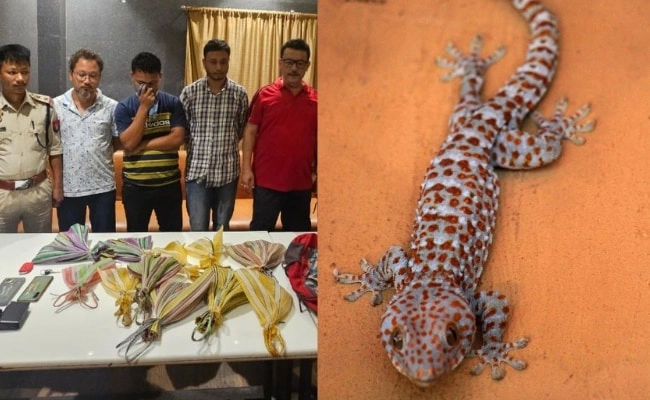In a significant operation highlighting the ongoing battle against wildlife trafficking, authorities in Assam, India, recently seized a number of endangered lizards that were reportedly destined for the illegal pet trade. The lizards, which are part of a protected species, were valued at an astonishing one lakh rupees each, underscoring the high demand and lucrative nature of the illegal wildlife market. This incident serves as a stark reminder of the threats faced by various species due to poaching and illegal trade, driven by the desire for exotic pets and traditional medicine.
The rescue operation was carried out by forest officials in coordination with local police, who acted on a tip-off about the illicit activity. Upon discovery, they found the lizards in a cramped and unsuitable environment, emphasizing the dire conditions animals often endure at the hands of traffickers. The authorities have since launched a thorough investigation to identify the individuals behind this operation, aiming to dismantle larger networks involved in wildlife trafficking in the region. This incident reflects a broader trend, as Assam has been grappling with increasing cases of wildlife crimes, which threaten biodiversity and the ecological balance of the area.
Conservationists have long warned about the implications of such illegal activities, not only for the species involved but also for the environment and human communities. The sale of endangered species contributes to a cycle of exploitation that can lead to the extinction of these animals. The lizards in question, being highly sought after for their unique appearances and perceived value, were likely to have ended up in the hands of private collectors or exotic pet enthusiasts, further exacerbating the crisis. The dangers posed by the illegal pet trade extend beyond the individual species, impacting entire ecosystems and the health of our planet.
As awareness about wildlife trafficking grows, so does the need for stronger enforcement of existing laws and international cooperation to combat these crimes. Efforts to rehabilitate seized animals and return them to their natural habitats are crucial, but so too is the education of the public about the importance of conservation. By fostering a deeper understanding of the ecological roles that these lizards play, and the threats posed by their removal from the wild, communities can contribute to the preservation of biodiversity. This recent seizure in Assam is a significant step toward curbing wildlife trafficking, but it also highlights the ongoing challenges and the need for collective action to protect our planet’s endangered species.




